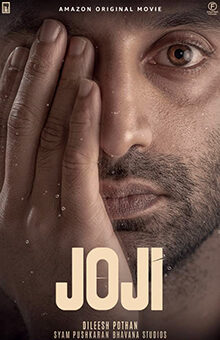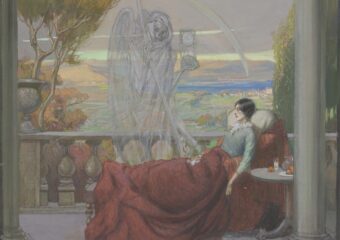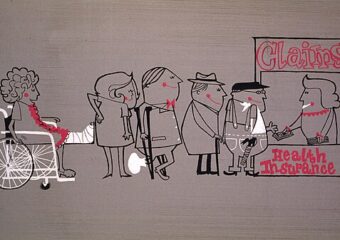Dileesh Pothan – Director
Syam Pushkaran – Screenwriter
Production companies – Bhavana Studios, Fahadh Faasil & Friends, Working Class Hero
USA release date – April 7, 2021
Run time – 114 minutes
Seen on Amazon Prime
According to the art:
As the first major movie featuring Covid-19, it plays a minor role in the plot and infers the time it is set.
Synopsis:
“Grandpa is in quarantine,” Popy tells the delivery man through his face mask in the opening scene. His grandfather was not in quarantine; Popy had ordered an air gun using his account and now needed to conceal it from him. But, because the movie is set during the Covid-19 pandemic, the delivery man could easily believe Popy’s story and hands over the package with the gun.
Popy is a teenager living in a multigenerational household in India, which in addition to his grandfather, Kuttappan PK Panachel, includes his father, Jomon, two uncles, Jaison and Joji, and Jaison’s wife, Bincy. They live on a sprawling and prosperous plantation Kuttappan owns near Kerala. Imperious and parsimonious, Kuttappan keeps tight control over his domain and family. As the movie begins, we see cracks forming in the family from the continuous pressure he exerts. The pressure is affecting Joji most.
Though he dropped out of an engineering college, Joji seeks wealth and independence, but his attempts to attain riches yield little until Kuttappan suffers a stroke. From the time of his father’s struggle for survival until his death, Joji plots to hasten his father’s demise and secure the family fortune for himself. Lives are lost, and so are Joji’s aspirations.
Analysis:
In the June 1, 2021 issue of The New Yorker, film critic Richard Brody calls Joji the “first major film of the Covid-19 pandemic.” So it is. The pandemic moves and escalates the plot, and also marks when the movie takes place.
Covid-19 immediately inserts tension and foreboding into the plot when Popy acquires his air gun only because he can get away with citing his grandfather’s quarantine. Other excuses could have produced the same result, but Covid-19 is applied unambiguously in this scene for the express purpose of inserting the gun into the story. The Covid-19 plot device is used again when Joji later wrestles the gun from Popy. But for the two brief scenes around the gun, Covid-19 does not figure in the story in contrast to other movies wherein a pandemic is the story (e.g., Outbreak, Contagion).
Covid-19 serves as a timestamp for 2019-2021, at least for the near future. The director, Dileesh Pothan, lightly sprinkles signs marking the time of a pandemic throughout the movie. In addition to the opening scene, we see hospital staff wearing high-level protective gear, and some people—not all—at Kuttappan’s funeral wearing masks. When Joji resists attending the funeral, Bincy tells him to “put on a mask and come.” These references are just enough to place viewers in 2019-2021. “Covid-19” is never spoken, and so fifty years from now, the timestamp may only mark widespread infection at an unspecified time. Eventually, then, as commonly the case in movies, the cars, dress, traditions, and technologies shown will better indicate when this movie is set.
Movies feature pandemics as horror elements, plot devices, and products of human folly. Covid-19 could conceivably become a common plot element sparing screenwriters from having to invent pandemics as has been required up until now. Rarely has a pandemic been used only as a marker of the time period of a movie. Covid-19 has been searing, however, and has scorched societies at all levels all around the world. Will anyone believe a movie is set in the current time period without signs of Covid-19? Dileesh Pothan thinks not and he also thinks Covid-19 can serve plots at the same time.
Also:
The promotional copy and opening credits say Shakespeare’s MacBeth inspired the movie.
The spoken language in the movie is Malayalam with English subtitles.
A version of this post is here at the NYU Literature, Arts and Medicine Database.



